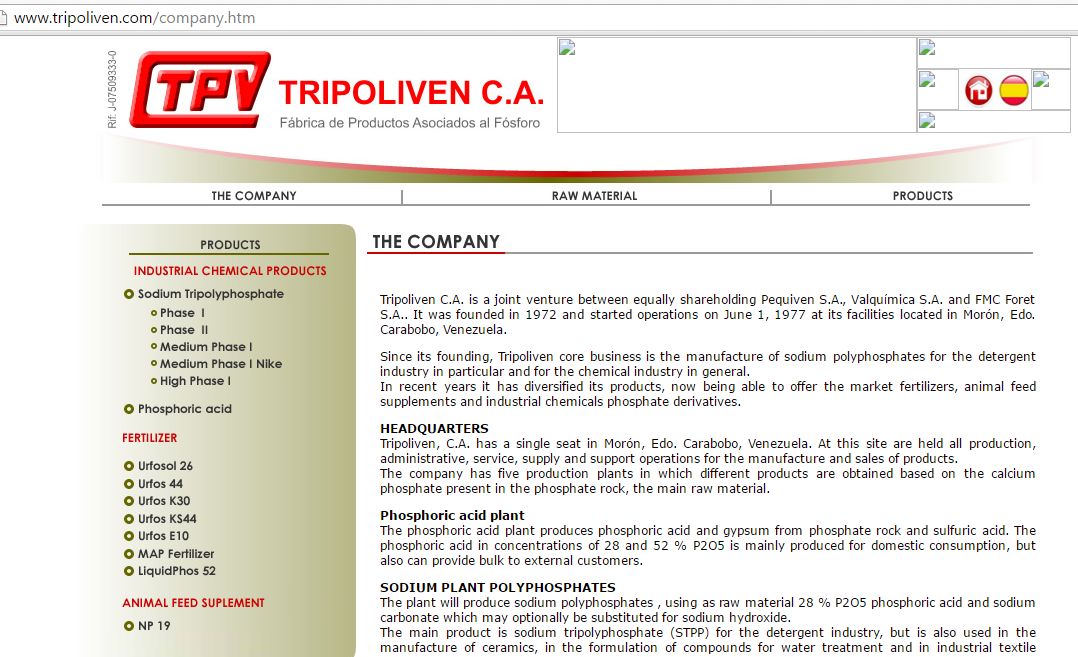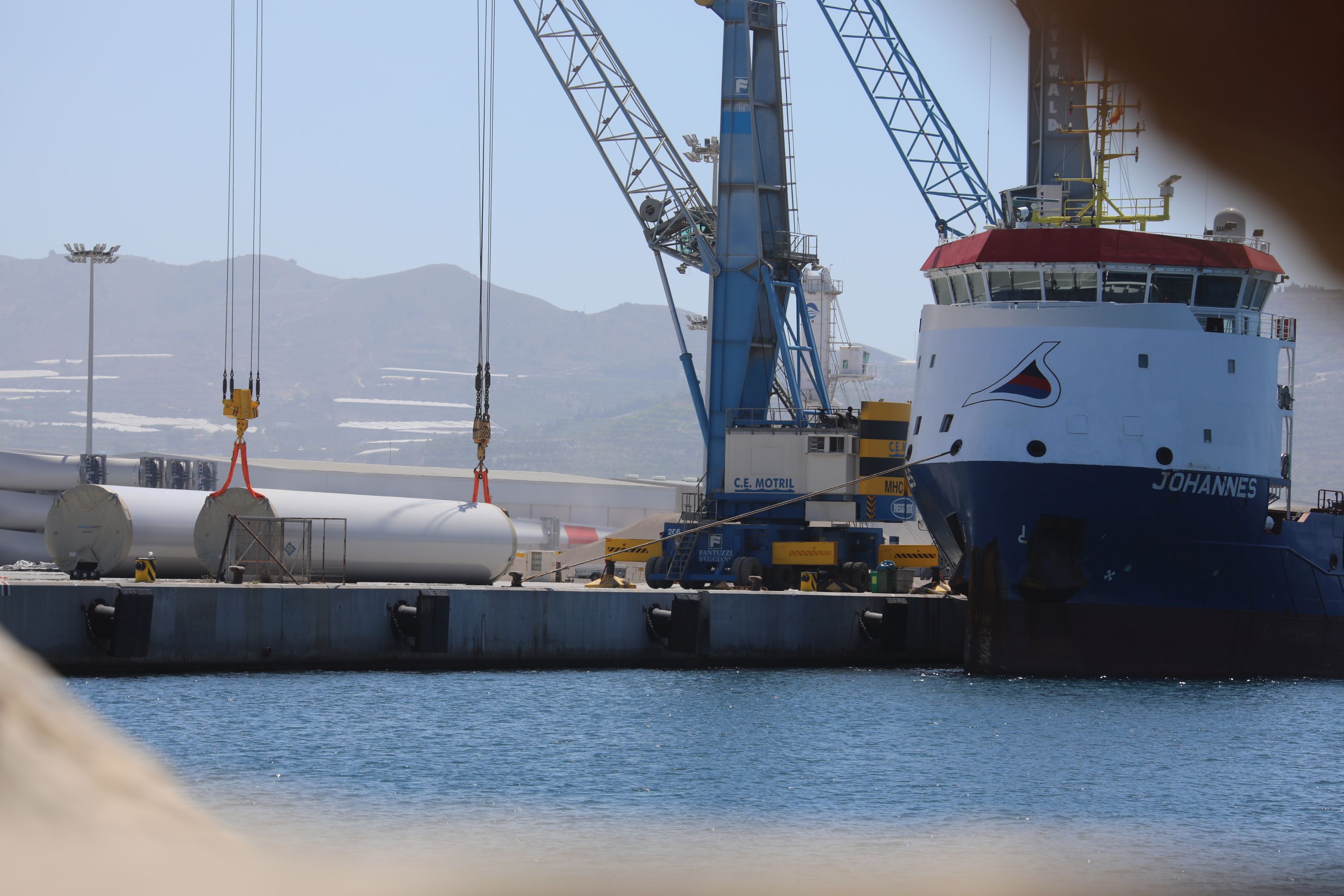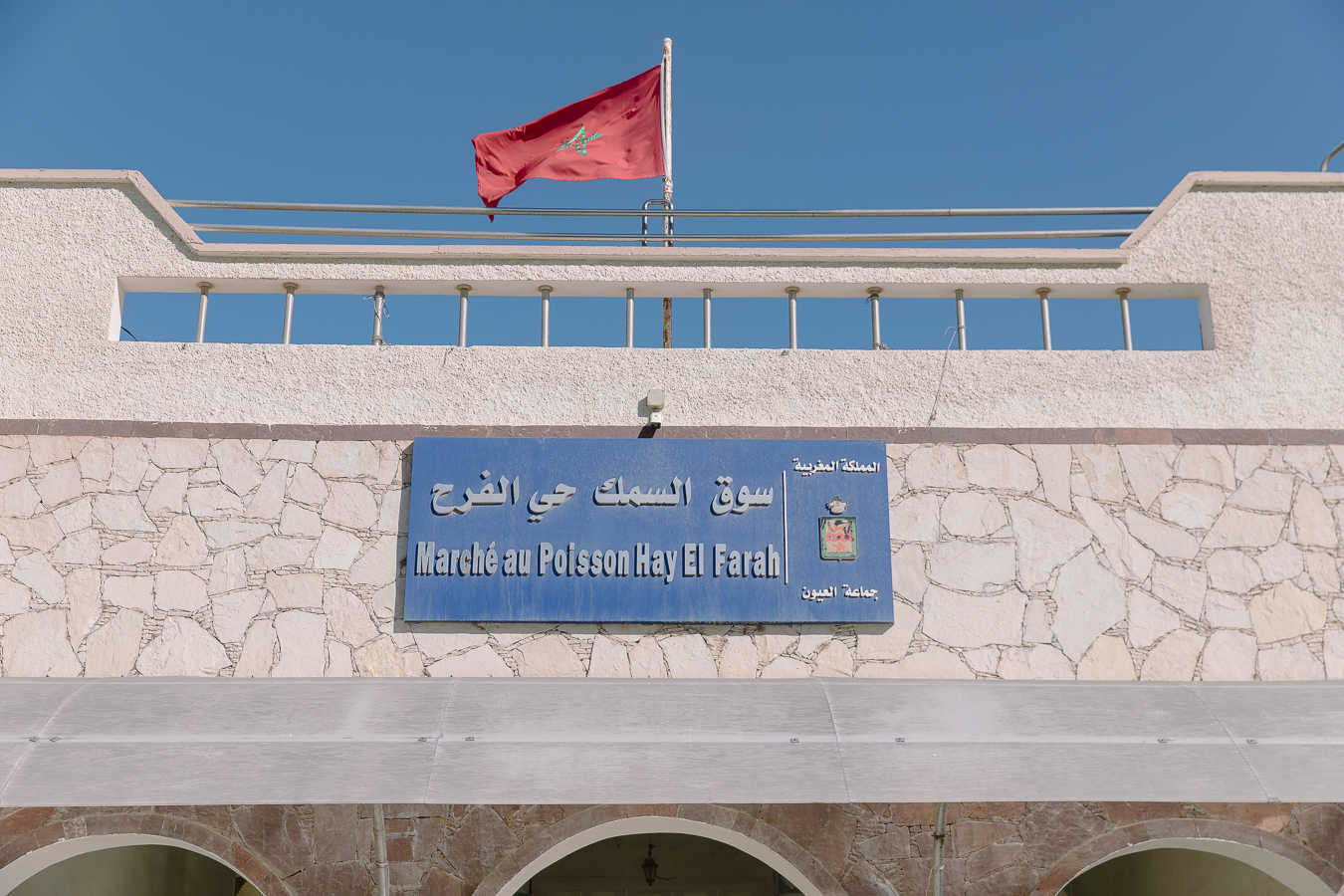
The US company FMC Corp has confirmed to WSRW that it has sold 33,3 percent ownership in the Venezuelan company Tripoliven which imports phosphates from Western Sahara. Now it is all Venezuelan.
On 7 April 2016, WSRW wrote that it had picked up credible information that FMC was to divest from its Venezuelan joint-venture company Tripoliven, which for several decades had been importing from a mine in occupied Western Sahara. WSRW at the time sent emails twice to the company to get the rumour confirmed, without receiving answers. The mine is controlled by Morocco, the occupying power.

The information about FMC Corp's exit from Tripoliven was finally confirmed in a mail from FMC Corp to Western Sahara Resource Watch on 30 March 2017. Seemingly, WSRW had last year reported on the FMC's sales shortly before it took place.
"FMC was able to divest its very small minority share to Banco del Caribe on November 4, 2016", Mr. Jim Fitzwater, Director Global Business Communications wrote in a mail to Western Sahara Resource Watch.
This means that Venezuelan interests have bought the US owned shares in the controversial trade, and now owns all the importing company.
The website of the Venezuelan joint-venture still refers to FMC Corp as a 33,33 percent shareholder (see screenshot to the right). That is now wrong.
"The information on the Tripoliven website is outdated since FMC ownership in the joint venture has been fully terminated", Mr. Fitzwater wrote.
This means that FMC Corp has finally terminated all involvement with phosphates from the mine. No reasons were given as to why the shares were sold.
FMC Corp's shares in Tripoliven were owned by its subsidiary FMC Foret, for several years.
The same subsidiary, had also had another involvement in the trade - through a direct imports to its production facility in Huelva, Spain. In 2010, the plant in Huelva closed down, and the company thus stopped its direct Spanish import.
In a few weeks, WSRW will issue its report P for Plunder 2016, outlining the exports of phosphates from Western Sahara over the course of last year. The Venezuelan government is - together with the government of India - the only foreign government involved in the imports of Western Sahara phosphate rock. Venezuelan government companies both import into subsidiaries in Venezuela and in Colombia. Tripoliven has in the past lied to WSRW regarding the trade, stating they do not import, while in fact they do.
Bancaribe (formerly Banco del Caribe) is a private Venezuelan bank. It is not known if that bank now controls only the 33,33% ownership formerly belonging to FMC, or if the bank also controls even more.
WSRW contacted Tripoliven in 2014 and 2015 without receiving an answer.
Morocco has occupied parts of Western Sahara since 1975, and the exports of phosphate rock contributes to the legitimization and financing of the annexation.
New report: Certified occupation
International certification standards embellish Morocco’s controversial trade with fisheries and agricultural products in occupied Western Sahara, new report documents.
Certification giant SGS points fingers elsewhere
SGS blames everyone else for mistakes on MarinTrust certificates it had issued to Moroccan companies in occupied Western Sahara.
New report: Greenwashing Occupation
Out now: WSRW today publishes a new report outlining the massive - and deeply problematic - renewable energy projects that Morocco is developing in occupied Western Sahara.
GMP+ does not check if “sustainable” fish is legally caught
The world’s largest certification scheme for “safe and sustainable animal feed” does not check whether its certified fish feed companies source from illegal fisheries in occupied Western Sahara, where catches violate the Saharawi people’s right to self-determination.



